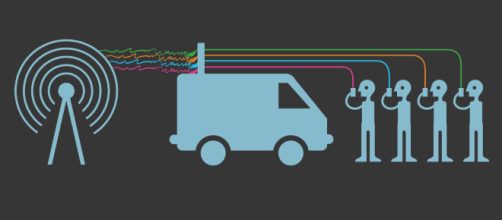In a letter to Sen. Ron Wyden (D-OR) obtained by the Associated Press, the US Department of Homeland Security disclosed for the first time that during a 2017 sweep of the DC metro area, they detected unusual activity consistent with the use of devices designed to intercept cellular calls and messages.
The DHS response, which was not released publicly, was written by top agency official Christopher Krebs and states that the department has not yet determined who placed the devices, or why they were placed in the nation's capital. The letter did not mention the specific location of the detected devices, or how they were brought into Washington, DC.
Sen. Wyden initially wrote to the DHS inquiring about Stingray use in November 2017, when the public interest in Stingray device surveillance was generally low.
'Stingray' devices already controversial
Lawmakers have been wary of the use of Stingray cell tower simulators, which garnered heavy public scrutiny in 2014 when public sweeps for the unauthorized devices detected several of the cell tower spoofing machines near the White House, Supreme Court, and the Pentagon, among other notable locations in and around the nation's capital. The findings stirred conversation of their potential to be used by foreign actors in their DC embassies, as well as use by federal, state, and local governments for law enforcement purposes that many are calling overreaching.
Beyond the federal use of the technology, state governments have been using the Stingray for years through local and state police departments in 25 states and DC, according to the ACLU. Activists and lawyers have argued that the indiscriminate use of the technology is a violation of the 4th Amendment and is an example of unlawful search and seizure.
DHS lacks funds, equipment to protect from the possible security breach
Although the Federal Communications Commission created a task force to combat illicit and unauthorized use of the technology in 2014, the political fervor and public conversation around the issue have dramatically died down in the four years since. The task force failed to produce an official report on the matter, and no longer holds regular meetings.
In his response, Krebs evaluates the risk that these devices pose. The Stingray, "may be a threat to US national and economic security," Krebs wrote in his statement to Sen. Wyden. However, the Department seems to have put solutions on the back burner. Sen. Wyden said in a statement Tuesday that, "leaving security to the phone companies has proven to be disastrous," and that, "despite repeated warnings and clear evidence that our phone networks are being exploited by foreign governments and hackers," the FCC has failed to address the issue properly.
This story comes amid a widespread privacy crisis surrounding Cambridge Analytica collecting over 50 million Facebook profile details in order to influence the 2016 US Presidential Election, and in the broader fight for privacy spurred on by Edward Snowden and his 2013 NSA revelations.


